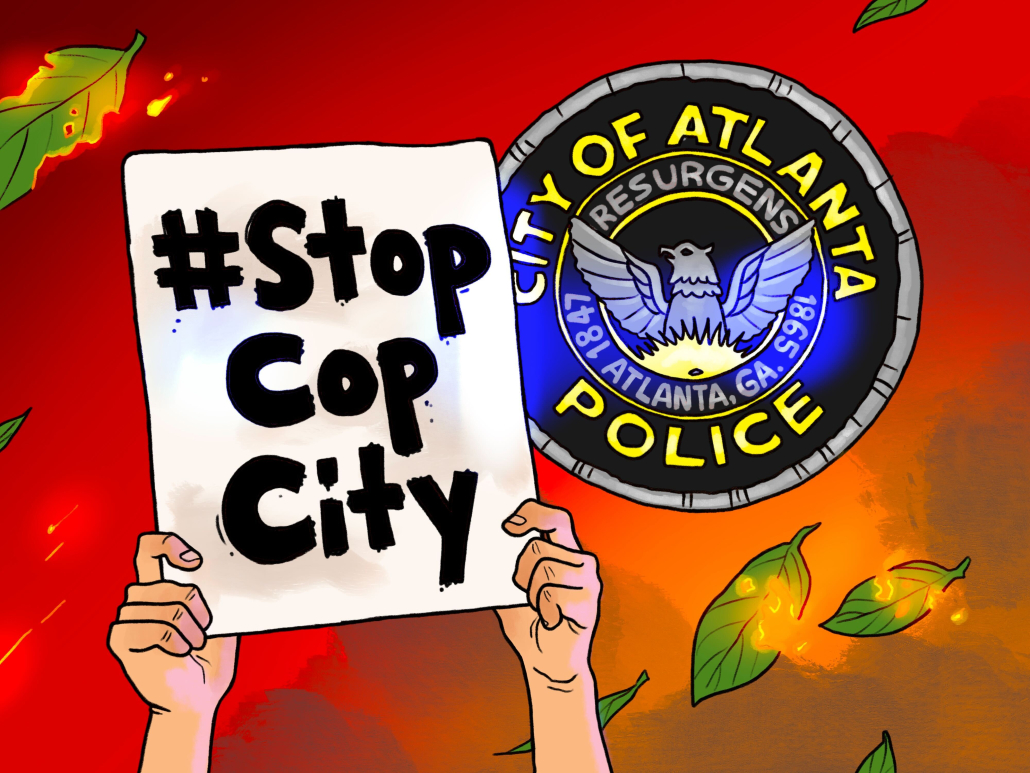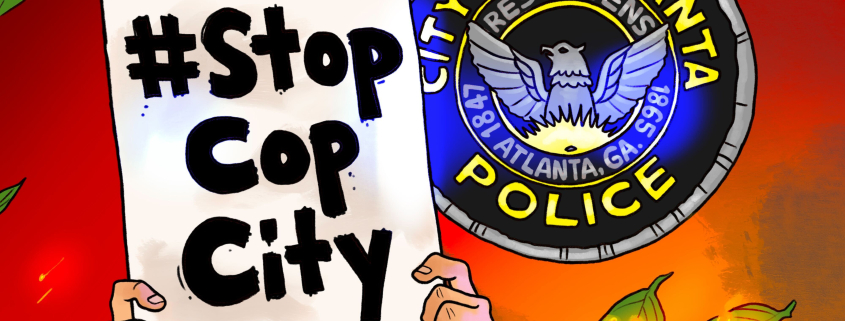I Reckon: The struggle for a better future lies in stopping Cop City

During winter break, my dad texted me sometime in the morning that Johnny, one of my childhood dogs, had passed. Cancer was the reason, he thought. It hit me hard and in between long crying sessions, I thought about how I kept losing things that used to anchor me to the place I called home for a long time — the little reasons I had to come back. The six, seven or eight years I’ve been away have passed by quickly, and more things have changed than I’d like.
Good dogs are gone too soon, the price of my childhood home keeps going up and the sociopolitical reality that keeps shifting rightward makes me question if I can still keep the promise I made to myself to come back to the state someday. When I fly back, which will hopefully be soon, I think I’ll also notice a big change in the green canopy that welcomes Atlanta-bound passengers — a shiny brand new police training facility sticking out like a heavily corporate-funded pig sty.
The proposed $90 million facility has already started breaking ground in a heavily forested spot in DeKalb County, on a site that has historically been a part of the Old Atlanta Prison Farm and a police shooting range and — even more historically — stolen Muscogee land. In between this piece of land’s existence as home to the Muscogee people and a shooting range, it was a plantation and then a prison farm. The history behind this forest is written in blood and violence, but the trees and foliage that grow here are an important part of the ecosystem.
This area, known now as the South River Forest, was designated as one of four “city lungs” for its importance and environmental impact as one of the largest urban forests in the Southeast. At a time when the effects of climate change become more and more apparent, environmental advocacy groups warn that fragmenting the forest could also make the area more prone to flooding, which would disproportionately impact the communities of color in the surrounding area. To that end, the Atlanta Police Foundation said it’d plant trees to replace any hardwood trees that would be torn down in a Q&A form revised Sept. 19.
It took the incredibly unfortunate slaying of 26-year-old Manuel Teran, otherwise known as Tortuguita, a burned police car and the destruction of the buildings of some of the financial backers of the Atlanta Police Foundation — the primary force behind Cop City’s existence — for the local protest to make international headlines. And that, the part about financial backers, is why this fight is so important. Perhaps more important than any other police training ground project, the Atlanta Police Foundation and a good chunk of money funding the construction of Cop City comes from outside of Georgia — including Amazon. This is not a condemnation of anyone who buys from Amazon, uses a Wells Fargo bank account, flies on Delta Airlines or shops at Home Depot. Far from it.
In this age of information, we’re sinking in a tidal wave of it. I would just hope “I Reckon” readers are reminded that the web spun between corporations with deep, deep pockets and the most horrible building projects known to man is surprisingly small.
There will always be rumblings about destruction and violence during times like these — “What about nonviolence!” they’ll say. I’d argue it’s hard to imagine how much more local residents could have done to clearly communicate with their political leaders. This is especially true when they repeatedly and overwhelmingly vocalized their opposition to the project with both the city council and the police foundation — the former of which residents have no clear representation on, and the latter of which didn’t even include a public comment section.
I don’t know what the future of policing or public safety looks like. I’m still early into my own reckoning of what the future looks like when and if the police will be abolished. But there’s one thing I do know, which is that the future shouldn’t look like what’s going on in the South River Forest. The future should not look like further militarization of police in what is already one of the most surveilled cities in the nation. “Public safety” and protection are not on the minds of the bankrollers of Cop City. It is the militant protection of property — their monetary assets — that they want to get. Come hell or high water, I hope they never get it.
Quynh Anh Nguyen is a junior writing about the implications of current Southern political events. Her column, “I Reckon,” runs every other Monday.

